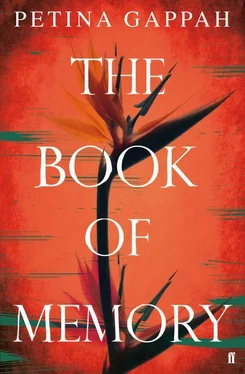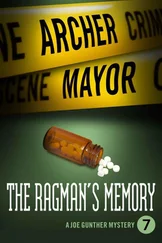It was the opposite at Summer Madness. Lloyd’s past was an active part of his present. It was in the Distinguished Flying Cross that Lloyd’s father had obtained with the 44 Rhodesia Squadron, in the Victoria Cross awarded to his grandfather, and in the sepia-toned photographs from long-ago wars that hung on the walls of the library.
Lloyd could not have gone off on a more different trajectory from his grandfather, Assistant Commissioner Lloyd Douglas Hendricks, commander of the King’s Native Regiment in Tanganyika and one of Rhodesia’s only six recipients of the Victoria Cross. He was one of Rhodes’s Pioneers, just the sort of man you wanted in a battle, especially if the battle happened to be against warriors in loincloths with nothing to shield them from the arsenal of a Maxim gun and other firearms than a goatskin shield, an assegai and the fleetness of their bare feet.
He appears on page 245 of the second volume of the African Heritage history book, a man with colourless eyes and a bushy moustache, looking out at Zimbabwe’s schoolchildren with the glassy stare of the subjects of early photography.
My father was right to say that I was to live with a doctor, but Lloyd was not a doctor in the sense that my parents would have understood doctors. He had obtained his doctorate in classics at Oxford, where he had first gone as an eighteen-year-old to avoid the call-up, the conscription that required all young white men with complete limbs to fight for Rhodesia. At Oxford, he campaigned for the guerrillas, raising money for refugees and for scholarships.
Where he had really gone off on a tangent was in his role in the war. Instead of answering the call-up, or staying as long as he could in England, Lloyd had actually returned to join the comrades — or, as the whites called them, the terrorists. He worked in the refugee camp at Nyadzonia as a teacher of English and civic studies, and he wrote the pamphlets that were scattered from helicopters across the eastern regions. He was there when Nyadzonia was bombed.
Lloyd’s refusal to join the war — I should say, his joining it on the wrong side — put him in direct conflict with his family. And after independence, he cemented his eccentricity by joining the university, but it was not to teach what he had studied. The new curriculum stated that students were better off learning how to make propane-gas-powered stoves and Blair toilets than learning Greek and Latin. Lloyd reinvented himself as a professor of classical literature, specialising in filtering Greek tragedies through the African experience.
Lloyd became another of that special class of Rhodesian eccentrics who were considered to have gone native in preposterous ways; men like Peter Garlake, whose insistence that the ruins in Masvingo were the work of black people alienated him from his fellow whites; or Michael Gelfand and Herbert Aschwanden, who collected Karanga mythology; Frank McEwen, who set up a village for sculptors; and George Fortune, who collected in one place all the totem names and poems of all the totem groups in the country.
It was during the war that Lloyd did just about the only thing of which Alexandra approved: he got engaged to a girl called Tracey Collins. Like Lloyd, she had been a teacher at a school in the Eastern Highlands; she had gone to Chimoio to volunteer as a teacher. She was killed in the attack on Chimoio by the Rhodesians.
Her face was in a frame on Lloyd’s mantelpiece, a small plain woman with hair like Farrah Fawcett’s, in a bow-tied blouse, her eyes earnest behind thick, round glasses, frozen for ever in the unflattering fashions of the late seventies.

From my new room at the back of the house, I heard the hum of the swimming pool. I was woken each morning by the sound of birds in the garden. In the first week, I slept on the floor, terrified of making the clean white sheets dirty. And I could not get used to not having Mobhi’s warm smallness next to me, no Joyi to breathe in my ear.
In time, the room became truly mine as I filled it with the strewn evidence of the passions that I picked up and discarded over the years: shoeboxes in which I bred silkworms and fed them mulberry leaves, model horses and framed pictures of jockeys, portraits of Markova and Fonteyn and my mountains of Archie comics and Misty and Jackie annuals.
On my first night, I broke Alexandra’s doll. It was an old one that had been passed down from Eleanor-Jean. It sat on the window ledge opposite my bed. It looked exactly the same as the doll with the porcelain face in Bester Kanyama’s photo studio in Highfield. I vividly saw my sisters and me sitting and posing next to it for a photograph.
It made me shiver to think that this doll with its blank, empty stare had sat there all these years looking first at Eleanor-Jean, then Alexandra, and now me. During that first day, its eyes seemed to follow me. And later, when I woke up in the night, I found its face shining at me in the moonlight. Unable to withstand that steady, unblinking stare, I decided to move it to the back of my cupboard. But I had woken up from a terrifying dream, and my hands were unsteady as I lifted it down. It fell to the floor with a crack, and when I lifted it up it was to see that I had smashed its porcelain face.
I hid it at the back of the cupboard, afraid that Alexandra would one day ask for it. As I lay in my new room in Lloyd’s house in Umwinsidale, I knew only that this room, with the new bed I did not sleep in until much later, was not big enough to contain the pain and fear that were within me. Fear of the doll, of Lloyd, of the unknown world in which I found myself.
The dream I had in Mufakose after Mobhi died came to me again later that night. I was pulled into the embrace of a horrible creature that spoke with my mother’s voice and said I needed to bathe while my father screamed a protest. I woke up frightened, unsure where I was, and only remembered when I realised that I was alone. I clutched the troll doll to my chest. In the company of the ugly doll with pink hair, and a hidden one in the cupboard, I passed my first night in the room that was to be mine for the next nine years, and that remained mine long after I left Lloyd.
For two weeks, nothing happened, and I was safe. Then one afternoon, Lloyd’s sister Alexandra walked over to where Lloyd and I sat outside on the veranda. As soon as I saw the doll in her hand, I waited for the kind of explosion that my mother would have produced in similar circumstances.
But she didn’t look at me, or ask me what had happened.
Instead, she looked at Lloyd and said, ‘If you are to make a success of this, you must teach her to respect other people’s property. And you really ought to teach her better manners, too.’
She put the doll down next to me.
My heart was loud in my chest as I looked at it. Its cracked face and sunken eye seemed to reproach me.
Lloyd said, ‘Memory can’t have meant to do it. In any event, you have not cared about that hideous thing for years now. It should have been at your house if it means so much to you.’
‘Memory, indeed,’ said Alexandra and pursed her lips.
After the doll, my next moment of discomfort came from MaiJethro, who, with Namatai, was one of the maids who took care of the house and of Lloyd’s grandmother, Poppy. They lived in the servants’ quarters, which were at the back of the house, hidden by a large hedge, but I naturally saw them every day as they worked in the different rooms.
MaiJethro, as far as I knew, never had a child, Jethro or no Jethro. And there was no Ba’Jethro, though he lived every day in MaiJethro’s conversation, serving, it appeared, no further purpose beyond agreeing with whatever view she wished to put forward. She told long stories about their conversations. His views served only to support hers, and she offered him to us as an authority on any subject, from the war in Mozambique to anything else she wanted to pronounce on.
Читать дальше













